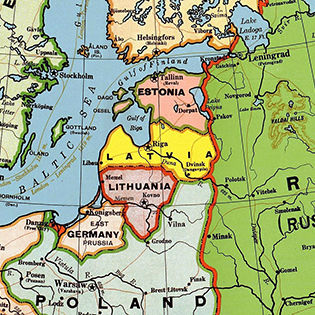The Baltic States and the interwar slump - a panel discussion
- Dates
- Friday 1 April 2022 (14:00-15:30)

The Baltic States gained independence as a consequence of the First World War. In this panel discussion, the speakers examine how these new states responded to – and were transformed by – the Great Depression.
The depression had a significant, transformative impact on the Baltic States. By the end of the 1930s, the political, economic and social structures of Estonia, Latvia and Lithuania had changed beyond recognition. However, not least as a consequence of the destruction wrought by the Second World War and Soviet occupation, the effects and legacies of the Great Depression have never been at the centre of scholarly attention. Historians are divided with regards to the interwar slump’s impact on the Baltics: While some argue that the Baltic States recovered from the crisis quicker than other European states, others argue these largely agricultural states were at the edge of an economic precipice. The panel thus stakes out the field of research on the interwar slump in the Baltics, reconstructs its progression and contextualises case studies ranging from the central state across local administration to private enterprises.
By investigating the impact of the 1930s depression in a broader context of an interwar economic crisis caused by the consequences of imperial collapse, territorial fragmentation and international conflict, it seeks to improve our understanding of the Great Depression’s position in Baltic history.
Speakers
- Katja Wezel (Riga/Göttingen): Economic Comeback? Riga as Latvia’s First Center of Trade, 1920-1939
- David Feest (Lüneburg): A National Issue? The Baltic German Bank G. Scheel & Co. and its Integration into Estonian Society during the Great Depression
- Klaus Richter (Birmingham): Beyond the Great Depression: Expectations of the Future in 1930s Lithuanian and Latvia
- Anu Mai Köll (Södertörn): Commentary